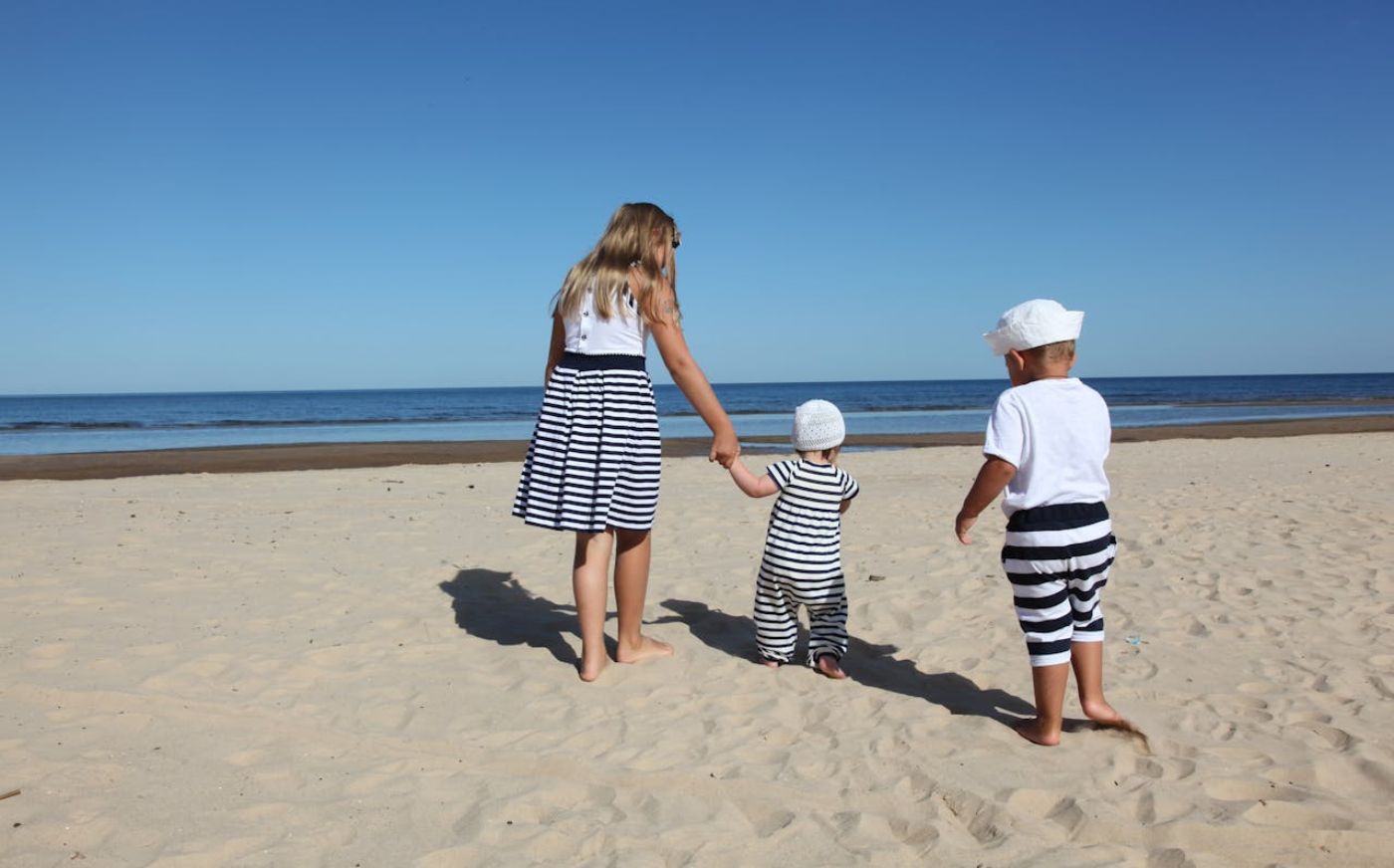Positive behaviour starts at home: practical tips for families
By Sara Asciamprener, Level 3 senior educator at N Angel Having studied Psychology with a […]
Read more

Sarah Ockwell-Smith is a mother of four and the author of 15 parenting books, including ‘The Gentle Parenting Book’.
As parents we look forward to family holidays, imagining all sorts of fun-filled days, happy nights out socialising, making precious memories and letting our hair down. These visions are often fuelled by pictures of smiling families in glossy holiday brochures, on websites and increasingly in carousels of perfect family holiday photos on Instagram.
None of these are real though. We can get caught up in believing this is what family holidays really look like. We can find ourselves feeling stressed and disappointed when reality differs. Real family holidays contain tears and tantrums as well as fun and laughter and that’s OK!
What we find fun as adults isn’t necessarily the same thing as what our children find fun. You may think that your child would enjoy a trip to an expensive theme park, but they may be happier, and less overstimulated, playing in the sand or dipping in rock pools.
Setting up a holiday itinerary that is bursting at the seams with ‘entertainment’ isn’t only far more expensive but often likely to result in grumpier, tired children. Make time for relaxed days off to enjoy the simpler things that your holiday destination offers.
Whether you’re flying long haul, taking a ferry to France, or driving a few hours to the coast, taking some time to prepare a travel kit is a good idea.
Pack a bag full of healthy, favourite snacks (regardless of whether your travel method includes a complimentary meal), and take a selection of toys and books to steal their attention. Pack more nappies, wipes and spare underwear than you think you need in your hand luggage and make sure you have some infant paracetamol and plasters to hand too.
Finally, don’t worry about what other passengers think. Babies and toddlers cry, it doesn’t mean you are a bad parent, or you need to apologise to your fellow passengers.
It’s likely your child’s sleep will be disrupted, at least for a few days, on holiday. Obviously, if you have travelled across time zones jet lag is going to cause disruption for at least three or four nights. But, even if you’re still in the UK, the fact that your child has to sleep in a different place can leave them feeling unsettled.
Warmer weather means children need to drink more not only during the day but at night too. Expect more night wakes, more (or a return of) night feeds, an increased need for reassurance from you and earlier morning wakes than normal. Accepting this sleep disruption is the easiest solution but, you can also help a little by keeping a bedtime routine in place (something simple like bath, massage, story, bedtime).
While you may be excited about trying new cuisine on holiday, children are naturally Neophobic and sometimes fussy eaters, which means they are resistant to trying new foods. Instead of cajoling your child to try new tastes, just accept that what they really need is reassuring familiarity.
It’s ok if all they eat is bread, cereal, and a few sticks of melon for a week or two. Packing some of their favourite snacks to take with you can really help if they are not keen on the food provided.
If you are travelling with a formula-fed baby, make sure to pack some formula powder. Changing brands while on holiday can result in a refusal to drink and can sometimes cause tummy upset.
While it may be frustrating, it is common for tantrums to increase on holiday. Getting used to the new routines, weather, change in food, sleeping location and even a change in the fact that your child is spending all day every day with you if they normally attend nursery or school can lead to some big feelings and big emotions.
Try to remind yourself that all this change is overwhelming for your child. While it may feel like they are being deliberately naughty in an attempt to sabotage your holiday, they are actually expressing their emotions in the only way they know how.
Plenty of patience and lots of hugs is the answer! Of course, trying to be a good role model is important too. Too often, as parents, we end up having our own tantrums, with lots of yelling and sulking, but while this temporary release may make us feel better, it only makes our children more dysregulated. If we want them to be calm, we have to model that calmness ourselves.
Don’t rely on being able to access first aid and medical supplies when you need them, wherever you are going. Making a bag up with the basics and taking it with you every day is the safest and most practical solution.
If you’re travelling abroad then brands will be different, there may be language barriers and many products can cost significantly more. If you don’t use the kit, then it’s still money well spent as you’ll have everything you need in one place when you get home. If you’re not sure what to include, speak with a local pharmacist for some top tips.
Try to book an extra day or two off work after you return home, not just to cope with the mountain of laundry you’ll inevitably bring home with you, but so that everybody can decompress before returning to the normal routine.
This is especially important if you are travelling long haul. Jet lag takes longer to recover from for children, and allowing their body clock to reset naturally over a couple of days at home is the gentlest way that causes the least stress for both them and you.